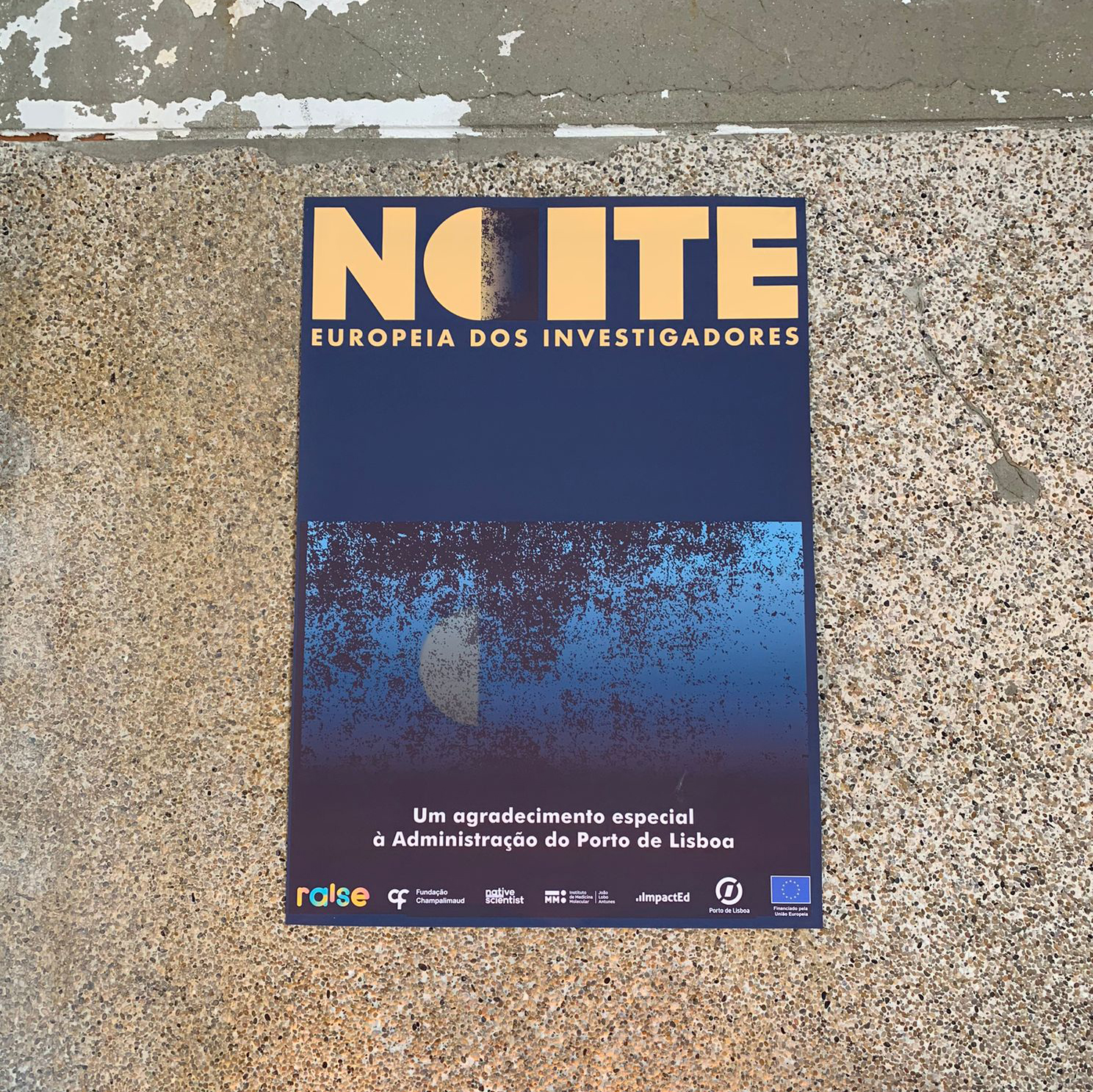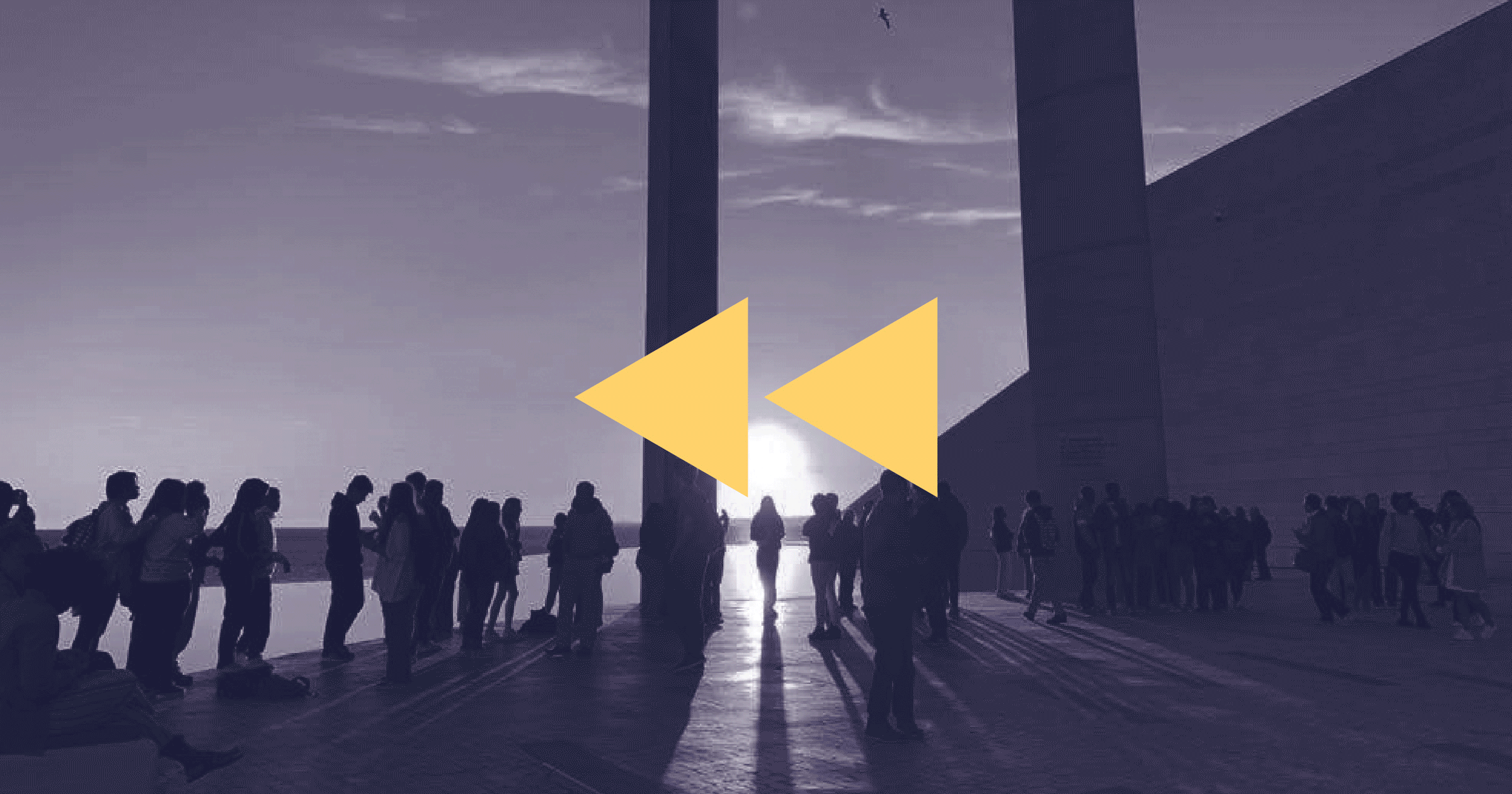06 October 2022
The multiple dimensions of the first European Researchers' Night at the Champalimaud Foundation
On 30 September, the Champalimaud Foundation hosted, for the first time, the European Researchers' Night (ERN).
06 October 2022
On 30 September, the Champalimaud Foundation hosted, for the first time, the European Researchers' Night (ERN).

This public event, organised by the RAISE (Researchers in Action for Inclusion in Science and Education) consortium composed of the NGO Native Scientist, the Champalimaud Foundation and the Instituto de Medicina Molecular João Lobo Antunes (iMM), joined the 49 ERNs that took place in 25 European countries on the same date.
Around 1,200 people visited six different areas of the Champalimaud Foundation and, over the course of nine hours, explored a programme consisting of 60 free activities: from dance to workshops, from music to hands-on science stations, from lab visits to stand-up comedy and speed dating aboard a catamaran that linked this programme to that of the Pavilhão do Conhecimento - Centro Ciência Viva. There were also moments of conversation, round-tables, podcasts, football and much, much more.

“Although we are made of the same particles, belong to the same species and share the same planet, when it comes to access to opportunities and resources we are very different. With this ERN, we sought to promote inclusion and diversity in science and education and, for that very reason, we worked with members of society who continue to be left out or feel detached from science”, explains Catarina Ramos, Coordinator of the Champalimaud Foundation’s Communication, Events and Outreach Group.
The RAISE consortium partners developed activities and programmes in schools located in prioritised areas of educational action. “In particular, RAISE has two educational programmes - Ciência de Noz Maneira (Science Our Way), run by the Champalimaud Foundation, and Cientista Regressa à Escola (Scientist Goes Back to School), developed by Native Scientist. It was very special to find some of the results of the co-creation between scientists, students and teachers in the ERN programme”, explains Joana Moscoso, Coordinator of Native Scientist and the RAISE project.
Furthermore, thanks to the funding obtained by this consortium from the European Commission (under the Marie Skłodowska-Curie Actions), almost three hundred students and teachers were able to travel free of charge to the Champalimaud Foundation and participate in this ERN. “Knowing that for many of these students this was the first time they felt close to science and scientists is really gratifying. Seeing some of them taking the stage, others leading visits to the laboratories… remembering their reactions when they entered the auditorium of the Champalimaud Foundation and having chairs “reserved” for everyone… these are all moments that are impossible to forget. This democratisation of science is absolutely fundamental”, says Inês Domingues, Communication Office Coordinator at iMM.
In parallel to this work carried out with schools, the organisation of this event established collaborations with institutions, associations and groups of scientists, artists, athletes, communicators and educators who, like RAISE, seek to contribute to a more inclusive society.
“ERN's diverse program has resulted from these collaborations and the feedback has been very positive. We believe that this ERN has not only strengthened and established new connections, but also created opportunities and made resources available to those who need them most. Finding out that it was at this event that many saw the river for the first time still gives me goosebumps. We are talking about young people who live 15 minutes by car from the Tagus River. There are really many dimensions of this ERN”, concludes Catarina Ramos.
